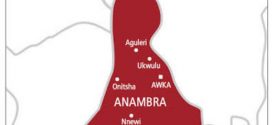By Raymond Nkannebe
There is a sense in which the recent destruction of alcoholic beverages by the kano State government reinforces the argument namely, that the fiscal architecture of Nigeria needs a revamp. And hastily too. On Wednesday, 26th December, 2018, news went to town that the Kano state Hisbah board citing a certain local legislation destroyed over 30 trucks laden with alcoholic beverages running into billions of Naira, and largely owned by southerners, particularly the Igbos of the South East, who reside in the Sabon Gari area of the state where a substantial percentage of the alcoholics are consumed.
At an elaborate function on the 25th of December, 2018, the board’s Public Relations Officer, one Mallam Adamu Yahaya told press men, “the cartons of beer were destroyed on Monday evening after interception at Kalebawa on Dambatta road, in Dawakin Tofa area”. In an obvious attempt to provide a legal imprimatur to the move, he said, “the Kano State Law No. 4 of 2004 has banned the manufacturing and use of intoxicants in the state” and claimed that the destruction was pursuant to a court order issued by a magistrate court.
Now, this is not the first time that Igbo businessmen have been at the receiving end of this obtrusive state legislation at the instance of the Kano state government with a well-documented history of religious extremism. Not too long ago in the year 2015, this same religious police were reported by the Premium Times as well as other news mediums to have “destroyed 326, 151 bottles of beer out of 363, 853 it confiscated from members of the public in the past three years”. The destructions were carried out in three phases. Similarly, in the year 2013, it was reported that about 200,000 bottles of beer were also confiscated by the same Hisbah police in like fashion.
Whereas what normally makes it to the press are the reports of the confiscation and/or destruction, many Nigerians do not know that the owners of these goods, beyond the seizures, are made to pay humongous amounts of monies as fines prorated according to the total economic value of the individual consignment. The drivers of the vehicles conveying the goods are detained while their vehicles are impounded until huge amounts of money usually un-invoiced, are paid to secure the release of both the vehicle and the drivers. It is indeed a peripatetic double-whammy for dealers of alcoholic beverages in the state who tend to pass the buck to the consumers in the form of high prices.
While it may be contested in favour of Kano state that it reserves the right to enact legislations proscribing the manufacturing and/or dealing in alcoholic beverages within its territory, such argument would fly in the face of the spirit of the 1999 Constitution which consecrates Nigeria as a secular state—the operation of which must trickle down to the socio-economic relationship between the citizens irrespective of where they are resident, and their host-state. Thus section 4 of the Kano state Law bandied about by the Kano state government to perpetuate its economic sabotage citing Shariah runs foul of the constitution to the extent that the entire provisions of the 1999 Constitution and its schedules do not proscribe the manufacturing, distribution and sale of alcoholic beverages. On the strength of section 1(3) of the 1999 Constitution therefore, the kano state Law No 4 of 2004, must be seen for what it is: a crude legislation repugnant to natural justice, equity and good conscience.
But beyond the legality/otherwise of this repulsive legislation, there is also a sense in which the hypocritical and somewhat “convenient righteousness” of the Kano state government’s attitude to the sale of alcoholics within its territory begs the question. It is in the manner in which it readily accepts allocations accruing to it from the Federal purse flowing from the VAT generated from the sale and consumption of alcoholic beverages elsewhere.
In a well-considered editorial by The Punch Newspapers entitled, “Redressing the Injustice in VAT Sharing” published on the 21st of August, 2017, the medium put the issues eloquently thus: “figures for the year’s VAT recently released by the government have once again exposed the contradictions in the Nigerian federation where states that produce the wealth that sustain the country are hardly appreciated. Just as the case with the country’s oil resources, the VAT figures reveal a warped system where some areas labour to produce the wealth while others position themselves to grab the lion’s share of what is available for sharing”.
In the specific context of the contradictions created by a situation where the core northern states professing sharia and installing all the paraphernalia of same in their domains including the proscription of sale and dealing in alcoholic beverages, yet file out to claim revenue derived from same elsewhere, the editorial continued, “Added to this brazen injustice is the inclusion of the 12 Shariah practicing Northern states in the sharing of VAT on alcoholic beverages. Hisbah, the Shariah law enforcement agency in the state regularly confiscate and destroy alcoholic drinks. In 2001, a group that called itself the Independent Shariah Implementation Committee destroyed more than 600 crates of assorted beer. On Nov. 27, 2013, the Hisbah destroyed over 240,000 bottles of beer in Kano. In January, 2015, the Kano state Hisbah board said it destroyed 326, 151 bottles of beer. This is outrageous…”.
This well considered editorial rendering, highlights the hypocrisy of the so called Sharia states including Kano, and further resonates the restructuring question. In an ideal federal state, one would expect that Value Added Tax (VAT) will be collected by the disparate federating units with remits made to the center so as to enhance competitiveness among the federating states. It is highly incongruous for the federal government to collect VAT on behalf of the states and redistribute same on the basis of a sharing formula that appears to favour states that contribute little or nothing to the pool especially on religious and other cultural considerations. A situation whereby Kano, flaunting her religiosity by proscribing the sale of alcoholics within its territory, yet turn around to rake in more VAT revenue derived from alcoholics than say Lagos or Anambra who allows for same, cannot be in line with the principles of true federalism.
Which brings me to the timely reaction of the Afenifere—the Pan-Yoruba Socio-Political Group who described the destruction as “hypocritical” arguing that a state (kano) which collects one of the highest amounts from VAT generated from other states where such beverages are sold should not be enjoying the benefits from goods it has prohibited contrary to Nigerian laws.
I like to associate myself with the position of Afenifere on the matter. Nigeria after all is not a socialist state operating on the principle of “from each according to his ability to each according to his need”. It is however unfortunate that the Ohaneze N’digbo has not weighed in on this one considering that the Igbos resident in Kano are the cyclical victims of this crude state policy.
Having said that, this writer observes with trepidation that at a time of dwindling revenues where state governments are unable to pay a miserly 30,000 minimum wage, the kano state government is rather pre-occupied with the drinking habits of residents of the state, rather than devising ingenuous means of boosting its revenue through soft regulatory taxes on the manufacturing, distributorship and sale of alcoholics in the state. Talk of leadership ineptitude!
Kano state it must not be forgotten accounts for one of the highest aggregator of out-of-school children roaming the streets from Tudun-Wada to Rijiyan lemo through Badawa and elsewhere as Almajirais and turning up at the polling booths year on year with counterfeit PVCs constituting electoral nuisance. A Multi Indicator Cluster Survey conducted by the National Bureau of Statistics, (NBS) in 2016-2017, showed that Kano accounts for a whopping 831,478 out of school children playing second runners up to Katsina and Bauchi states respectively who lead the pack. But apparently, the destruction of alcoholic beverages is a greater social good than the compulsory educational enrollment for these disturbing population of out-of-school children who have been described by one public thinker as “potential threats to social peace”.
Let us not forget also that this is the Kano of Abdullahi Umar Ganduje of the infamous 5 million dollars’ contract scandal. But in a rather disquieting public reaction, while the indigenes of Kano hailed and chanted “Allahu Akbar” at the destruction of the alcoholic beverages, they promised a 2-million-man march for governor Ganduje in obvious support for his administration. Never mind that the visibly appropriated monies were meant to enhance the general welfare of the indigenes of the state. In essence therefore, while it is haram for non-muslims to engage in their legitimate business in a federal republic that thrives on religious tolerance, it is halal for a state governor to pilfer the resources of the state while the indigenes register their support with a disturbing silence. It is this contradiction that however helps to unmask the ultimate objective of the obnoxious local legislation: the socio-economic irritation of the Igbos and other minority tribes resident in the state whose economic survival revolve around dealing in alcoholic beverages at stalls, pubs and hotels scattered in and about the state capital.
 Hottestgistnaija.com
Hottestgistnaija.com




